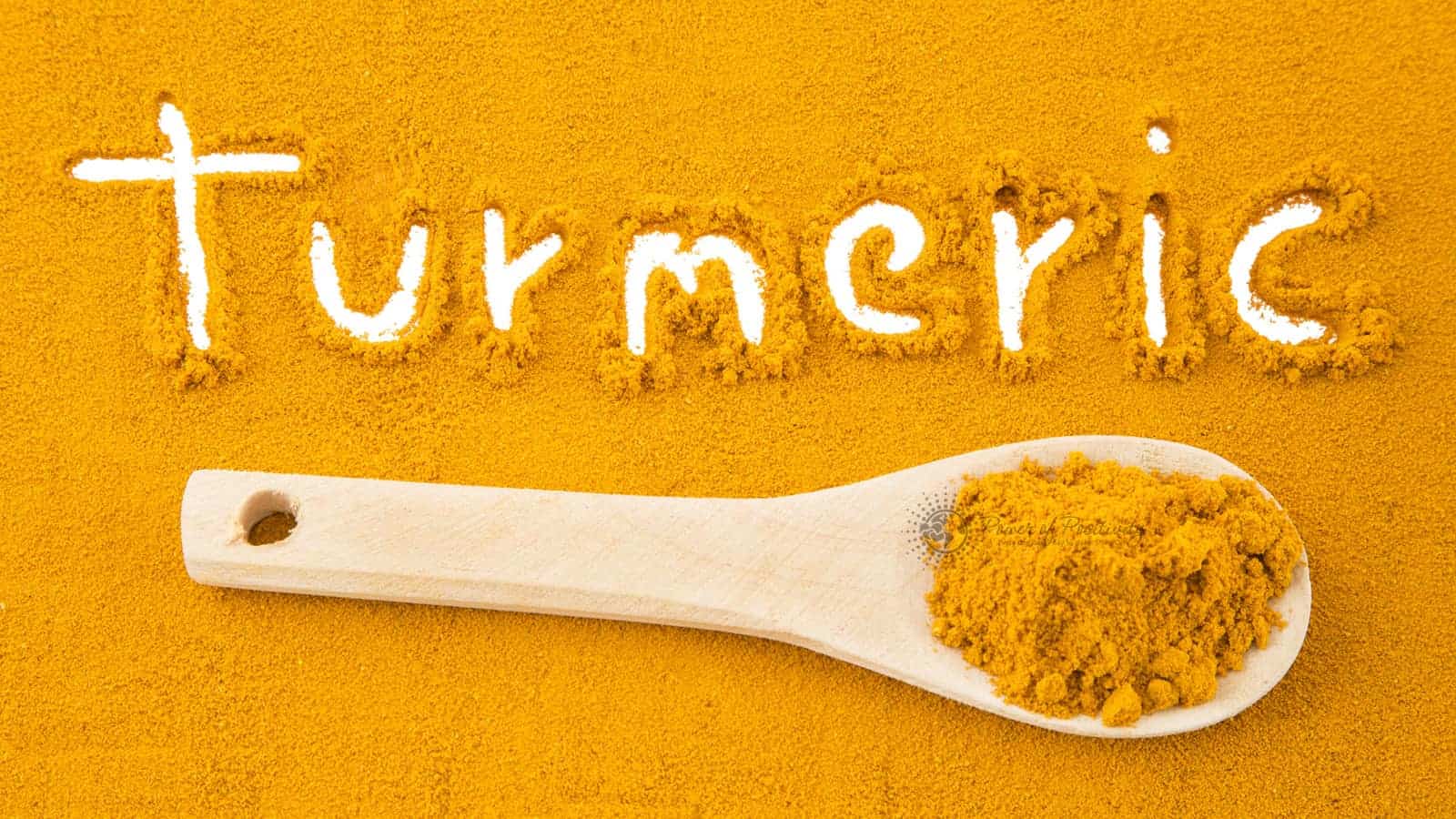Sure, you can buy supplements with the incredible healing power of turmeric, but when you can make your own easily, why spend the money for someone else to do it for you? Herbal turmeric supplements manufactured in the United States do not have to comply with quality or safety regulations, so it is even more important to know how the herbs you take are made, or if you don’t know for sure to keep the quality control in your own hands.
How to Make Turmeric Supplements
Making your turmeric supplements is easy. In this article, we will give you a simple recipe for your turmeric supplements to take daily and also several reasons to start doing so now.
Benefits of Turmeric Supplements
Turmeric is getting a lot of attention in the natural health literature for the simple fact that it has the potential to not only help heal but to prevent, illness in the first place.
Turmeric is herbal and traditional medicine, but it also serves as a fabric dye. Furthermore, Asian and Hindu cultures use it in spiritual practices, and it is a significant component of curry cooking as a food flavoring. The yellowish color of ground turmeric comes from the dried root or rhizome of the Curcuma longa plant.
Turmeric is related to ginger, and the roots of both plants look similar. Turmeric has a peppery spice flavor and mustard color and fragrance. The active ingredient that makes it a miracle cure is curcumin.
Curcumin is powerful medicine for the following things that it does in your body.

Anti-inflammatory
Turmeric is a spice used in culinary dishes like curry. A major component of turmeric is curcumin. It gives curry its deep golden color. Besides being used in food dishes around the world, turmeric has many medical benefits. One significant benefit of turmeric has to be its anti-inflammatory abilities. It can reduce pain and improve movement because of arthritis. Some people have found help from turmeric to treat osteoarthritis. Taking 1,200 mg. of turmeric three times a day works similarly to ibuprofen, although research has not confirmed this information. If you plan to take turmeric for pain, talk with your doctor first. Turmeric can have adverse effects on some medications, so you want to prevent any dangerous interaction.
Antibacterial
Traditional healers also prescribed curcumin as an antibacterial. Studies show it’s effective against Staphylococcus aureus in experiments. Turmeric is even more powerful when it’s combined with other antibacterial agents. Researchers hope to create an antibiotic from turmeric in the future. You can use it for infections.
- On your skin
- In your mouth
- On your face
Anti-carcinogenic
Turmeric can dye and flavor foods. Its therapeutic abilities make it especially interesting to scientists. One benefit of turmeric is as an anti-cariogenic. This means it can fight tooth decay. This is because turmeric can lower the bacteria in your mouth, which causes tooth decay. They have found that turmeric combined with a technique used to seal your teeth was very effective against cavities. Talk to your dentist about using curcumin to help prevent cavities. Maybe they haven’t heard the good news about turmeric’s excellent dental benefits.
Antifungal
Studies show that turmeric has antifungal benefits. It does this by lowering the effects and concentration of the fungus. Today, many pathogenic organisms have become resistant to drugs used in the past. Researchers have found that spices, like turmeric, have active compounds that could provide some resistance to infections. Curcumin in turmeric can occur in mouthwash and lozenges as an antifungal treatment. Further research will reveal whether curcumin will fight oral candidal infections, but researchers are hopeful it will.
Anticoagulant (blood-thinning)
Turmeric’s key ingredient, curcumin, acts as an anticoagulant. It prevents blood clots from forming. If you’re on blood-thinning meds, don’t take turmeric supplements because it could increase your chances of bruising or bleeding. Be sure to talk with your doctor before you take any supplements. Avoid turmeric if you’re on these blood-thinning medications:
- Warfarin( Coumadin)
- Clopidogrel( Plavix)
- Heparin
- Cataflam
- Advil
- Motrin
- Ibuprofen
- Naproxen
- Fragmin ( Dalteparin)
- Lovenox(Enoxaparin)
Antioxidant
Turmeric has antioxidants that rid your body of free radicals by acting as a neutralizer to them. In clinical trials, they found that turmeric’s antioxidants might reduce glaucoma, macular degeneration, and cataracts. It’s also thought that turmeric can stimulate the effects of other antioxidants when combined with them.
Antiviral
The curcumin in turmeric has antiviral properties that fight a wide range of viruses. The downside is that curcumin gets rapidly metabolized by your body, limiting its effectiveness as an antiviral. Despite this, researchers continue to study turmeric since it has shown some antiviral activity in humans. Studies found some benefits against each of these viruses.
- HIV
- Zika virus
- Dengue virus
- Chikungunya Virus
- Vesicular Stomatitis Virus
- Influenza A Virus
- Enterovirus 71
- Human Respiratory Syncytial Virus
- Norovirus
- Viral Hemorrhagic Septicemia Virus
- Porcine Reproductive and Respiratory Syndrome Virus
- Transmissible Gastroenteritis Virus
Antidiabetic (decreases blood sugar levels)
Some believe that turmeric could potentially help people with diabetes. It appears that curcumin improves beta-cell function, which makes insulin. Insulin carries glucose to your cells. In type 2 diabetes, cells become resistant to glucose, which causes high blood sugar. Your pancreas produces more insulin to lower your blood sugar levels to compensate. Turmeric isn’t a quick fix for diabetes, but hopefully, further research will reveal more ways it could help individuals with diabetes.
Anti-Depressant
Another fantastic benefit of turmeric (under current study) is its ability to help prevent depression. Researchers think that turmeric boosts your brain’s production of two hormones: serotonin and dopamine. These hormones help relieve depression and help you feel happier. Turmeric for depression could be the latest trend in treating individuals who suffer from depression. This is good news because there would be fewer side effects, but the cost would be dramatically less for those who suffer from depression.
It prevents brain degenerative disease.
Curcumin helps increase brain hormones. These hormones create new neurons in your brain and prevent degeneration from occurring in the brain. The neurons are essential because they make new connections in certain parts of your brain. It’s thought that turmeric could help reverse brain disorders and some age-related brain conditions like Alzheimer’s disease. Besides this, turmeric may help improve your memory and even make you smarter. Researchers are hoping to understand how turmeric benefits the brain entirely.
Anti-cancer
Researchers are still studying it, but there is some evidence that curcumin kills cancer cells and stops others from growing. They hope turmeric could effectively kill stomach, bowel, breast, and skin cancer cells. Also, studies show that curcumin reduces many of the side effects of chemotherapy and radiation therapy. This helps improve patients’ quality of life as they go through these treatments. Researchers also say that curcumin can decrease patients’ tumor markers and increase their survival time.

Supplement use in the United States
A study of the increasing use of supplements in the United States found that the percentage of adults using supplementations increased from 23.2% in 1987 to 33.9% in 2000. This increase was actual for both men and women, all races and ethnic groups, and all adults over the age of 25.
How to make your turmeric supplements
Find a good quality herb supplier at a natural food store or holistic health store. If you can find the whole root, ask the store if they will grind it for you to know it came from the actual plant source. Ask if there are multiple varieties of turmeric and ask which one contains the highest level of curcumin.
You will need about 1/3 cup of ground turmeric. Mix the dry turmeric spice with three tablespoons of raw, organic honey. Use a spoon to mix the turmeric and honey into a paste. Pinch off small supplement pill-sized balls that are small enough to swallow, roll them, and lay them on a sheet of parchment paper. Place the balls and parchment paper in the freezer to solidify.
The turmeric supplements should only take 24 hours to harden enough to be stored. Please put them in a container that can be sealed and protected from moisture entering it. Keep it in the freezer, and you are ready with turmeric supplements that you made on your own. Take one or two per day and monitor your health changes.
The FDA does not regulate herbal supplements.
One of the best reasons to make your supplements is that the Food and Drug Administration (FDA) does not regulate herbal or dietary supplements or screen them for quality. So manufacturers can put anything they want in the pills you pop daily.
One review of herbal supplement use says, ‘In the United States, 6 out of every ten people use dietary supplements. For decades, the Food and Drug Administration (FDA) protected the public from mislabeled and unsafe products by regulating foods those dietary supplements that included only essential nutrients. The Nutrition Labeling and Education Act of 1990 included herbs as dietary supplements. When the Dietary Supplement and Health and Education Act (DSHEA) of 1994 passed, the FDA lost its regulatory power.’
Herbs like turmeric are exempt from prescreening or any safety guidelines, quality testing, or studies that prove their effectiveness before being released to the public. Currently, the FDA may only take action if a product poses a direct health threat and only after people have already experienced health problems due to taking the supplement.
You need to know that purchased supplements can lie about the ingredients that are actually in the supplements, what they do for your body, and can even contain substances that are harmful to your health without your knowledge. If you choose to take a manufactured turmeric supplement, look for one made by nationally known food and drug companies. Check for laboratory testing on the label of the package. For example, USP is an independent laboratory that tests for the product’s ingredients and examines the manufacturing facilities.
Final Thoughts on Turmeric Supplements
Traditional Indian and Chinese healers used turmeric for centuries. Its extensive healing properties are just now acknowledged by the medical world. It promotes healing in various conditions, including stomach problems, diabetes, skin problems, arthritis, infections, and viruses. You can buy these supplements, or you can make your turmeric supplements. Follow the recipes provided in this article to create your supplements to experience the practical, healing benefits of this fantastic spice.


















